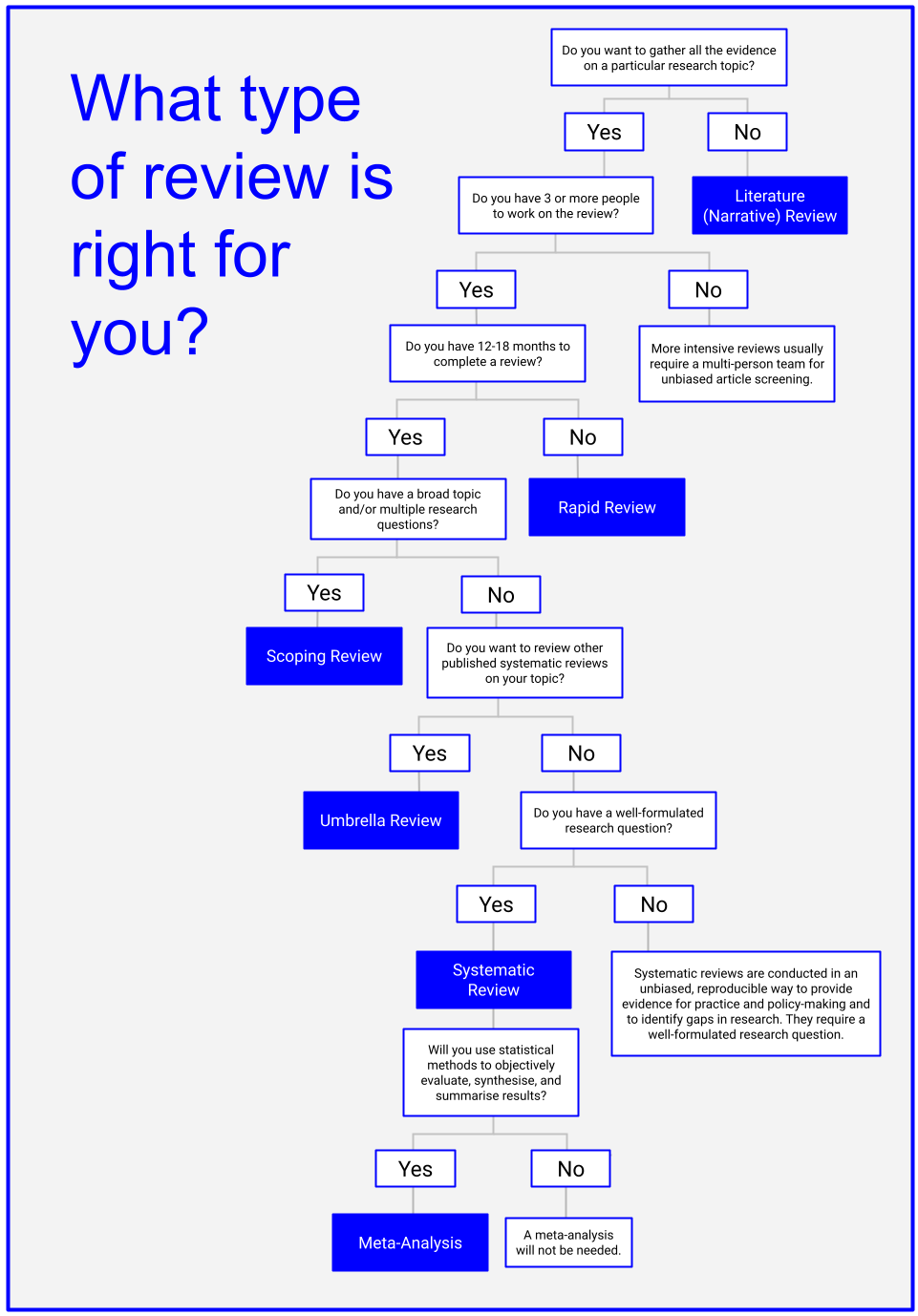
"Review Methodology Decision Tree" by Cornell University Library is licensed under CC BY 4.0
Review types
Literature (Narrative) Review
A broad term referring to reviews with a wide scope and non-standardised methodology.
- Search strategies, comprehensiveness, and time range covered vary and do not follow an established protocol
Use our Library team's Evidence Search service for support with your literature review.
Rapid Review
Applies systematic review methodology within a time-constrained setting.
- Employs methodological “shortcuts” (limiting search terms for example) at the risk of introducing bias
- Useful for addressing issues needing quick decisions
Read the Rapid Reviews Methods Series
- Guidance on literature search
- Guidance on team considerations, study selection, data extraction and risk of bias assessment
- Guidance on assessing the certainty of evidence
- Involving patient and public partners, healthcare providers and policymakers as knowledge users
Consult a health librarian in your region for support designing a robust, high-quality, reproducible rapid review.
Scoping Review or Systematic Map
Systematically and transparently collects and categorises existing evidence on a broad topic or set of research questions.
- Seeks to identify research gaps and opportunities for evidence synthesis
- May critically evaluate existing evidence but does not attempt to synthesise the results in the way a systematic review would
- May take longer than a systematic review
Consult a health librarian in your region for support designing a robust, high-quality, reproducible scoping review.
Umbrella Review
Reviews other systematic reviews on a topic.
- Often defines a broader question than is typical of a traditional systematic review
- Most useful when there are competing interventions to consider
Consult a health librarian in your region for support designing a robust, high-quality, reproducible umbrella review.
Systematic Review
A methodical and comprehensive literature synthesis focused on a well-formulated research question.
- Aims to identify and synthesise all of the scholarly research on a particular topic, including both published and unpublished studies
- Conducted in an unbiased, reproducible way to provide evidence for practice and policy-making and to identify gaps in research
- May involve a meta-analysis
- Much more time-intensive than traditional literature reviews
Consult a health librarian in your region for support designing a robust, high-quality, reproducible systematic review.
Meta-Analysis
A statistical technique for combining the findings from disparate quantitative studies.
- Uses statistical methods to objectively evaluate, synthesise, and summarise results
- May be conducted independently or as part of a systematic review
